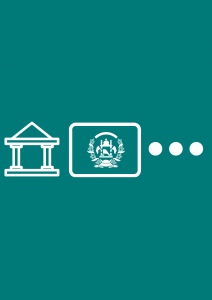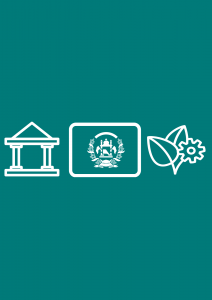Author: paul
Bangladesh National Agriculture Policy 1999
Click image to view PDF The overall objective of the National Agricultural Policy, 1999 of Bangladesh is to make the nation self-sufficient in food by increasing crop production to eventually create a dependable food security system. Additionally covers crop production policy, irrigation as an input to increase production, agricultural research, and extension, etc. Read MoreAfghanistan Rural Renewable Energy Policy
Rural Renewable Energy Policy 2013 of Afghanistan is based on a set of objectives – to survive energy requirements, provide electric lighting for rural households and displace the use of solid fuels. Among other important areas, the policy also addresses barriers to renewable rural energy policy implementation, renewable energy resources, policy implementation, institutional framework etc. Read MoreAfghanistan National Renewable Energy Policy
Click image to view PDF The National Renewable Energy Policy of Afghanistan includes goals like meeting the short-term energy needs, strengthening the sector and increasing the deployment. The policy includes implementation of ANREP, institutional arrangement for ANREP, monitoring and evaluation, and knowledge management. Read MoreAfghanistan Renewable Energy Policy
Click image to view PDF The overall objective of the Renewable Energy Policy of Afghanistan, 2015 is to lead to optimal utilisation of renewable energy resources, create social equity and environmental sustainability. The policy also covers areas of implementation, standards, benchmarks for performance etc. Read MoreAfghanistan National Wheat Policy
Click image to view PDF The overall objective of the National Wheat Policy of Afghanistan is to design and implement programme interventions aimed at increasing the production and productivity of wheat through national and international cooperation. The policy covers areas like agricultural governance, strategy for wheat sector development, the scope of the policy and its [...] Read MoreNational Rural Water, Sanitation, and Hygiene (WASH) Policy 2010
Click image to view PDF The goal of the Afghanistan National Rural Water, Sanitation and Hygiene (WASH) policy 2010 is to improve the quality of life of people through improved access to water to reduce morbidity, and enhance productivity and well-being. The policy covers areas like its overall approach, focus and priorities, strategy institutional strengthening [...] Read MoreNational Rural Water, Sanitation, and Hygiene (WASH) Policy 2016-2020
Click image to view PDF The goal of National Rural Water Sanitation and Hygiene (WASH) Policy 2016-2020 of Afghanistan is to provide rural areas with safe access to water supply and sanitation services along with hygiene promotion. The policy covers areas like sustainable development goals, operation and maintenance, environmental aspects, WASH cluster transition to MRRD [...] Read More
Policy and Strategy for Forestry and Range Management Sub Sectors
Click image to view PDF The Policy for Forestry and Range Management describes the role of various institutions in Afghanistan for maintaining forest and range land covers to achieve a balance between maximization of production and enhancement and maintenance of the natural and wildlife resource base. Read MoreAfghanistan Strategic Policy Framework for the Water Sector
Click image to view PDF Strategic Policy framework for the Water sector in Afghanistan is based on the goal to achieve food security, self-reliance, improved livelihoods ,and economic well-being, etc through developing the efficiency of the water sector by following acceptable environmental norms. The framework covers the overall and strategic objectives, policy issues ,etc. Read More
